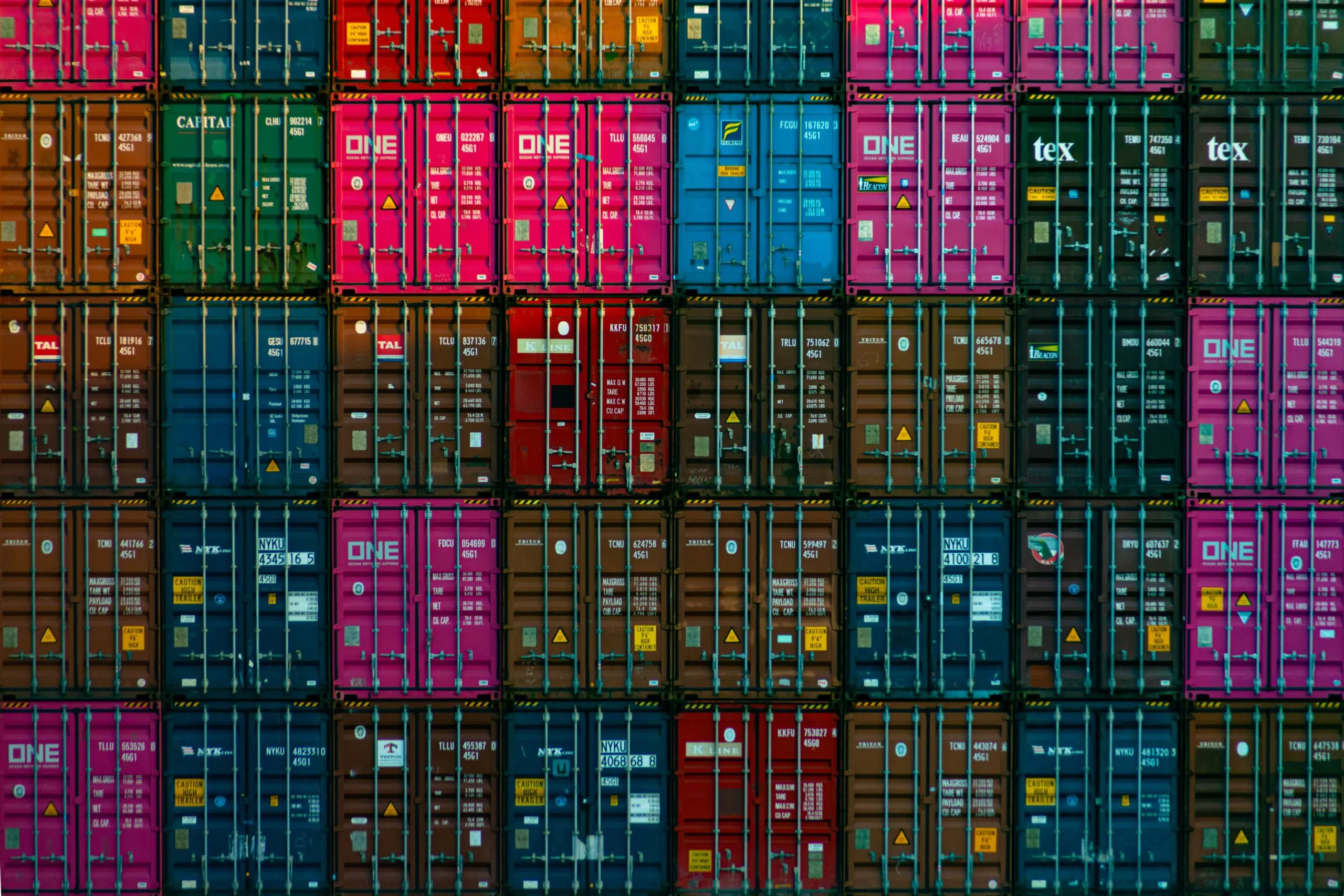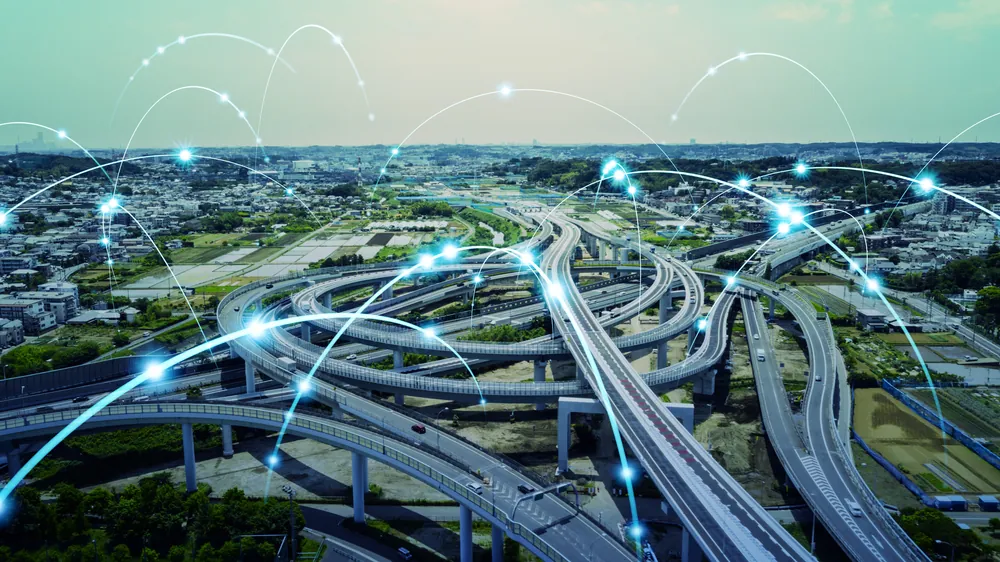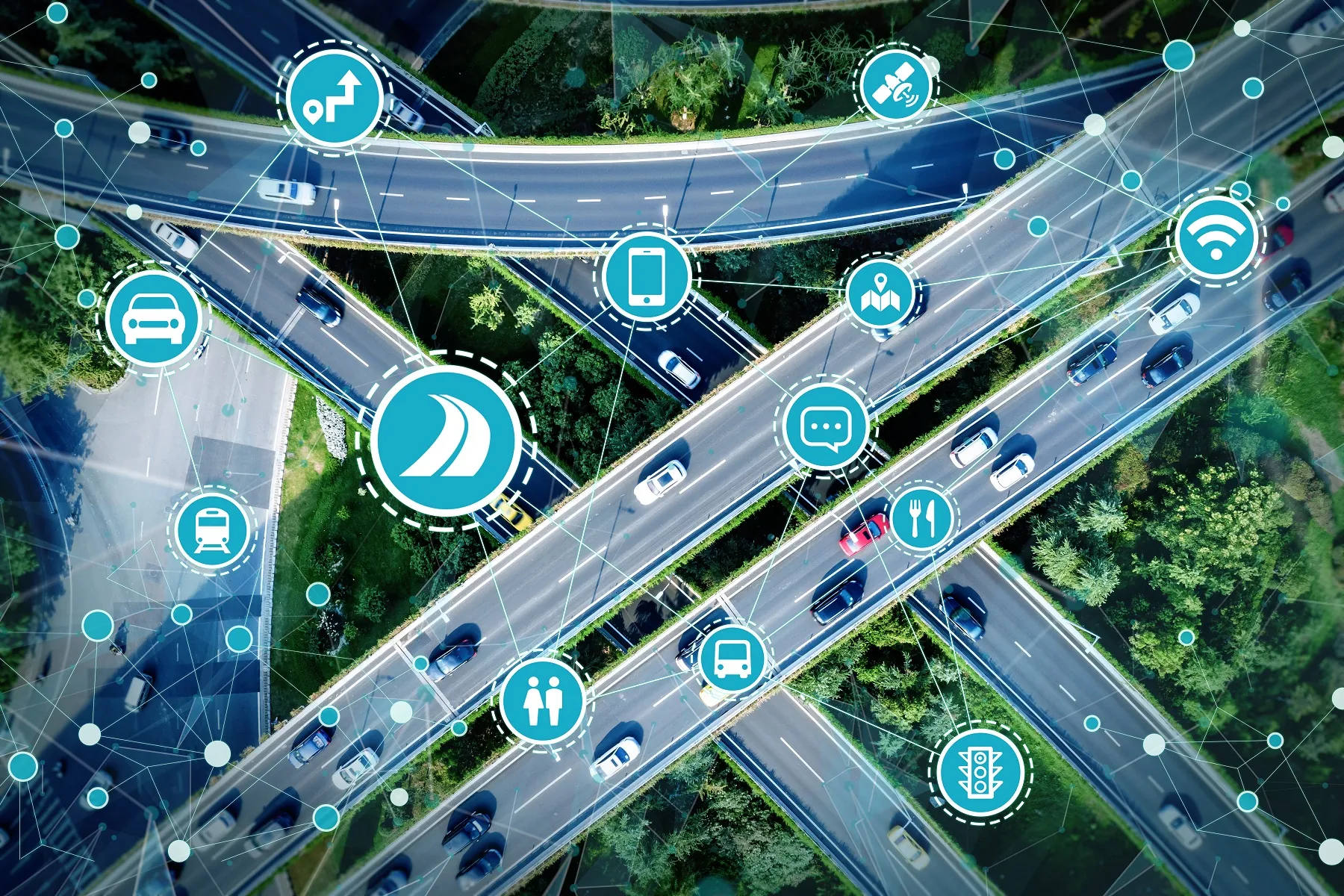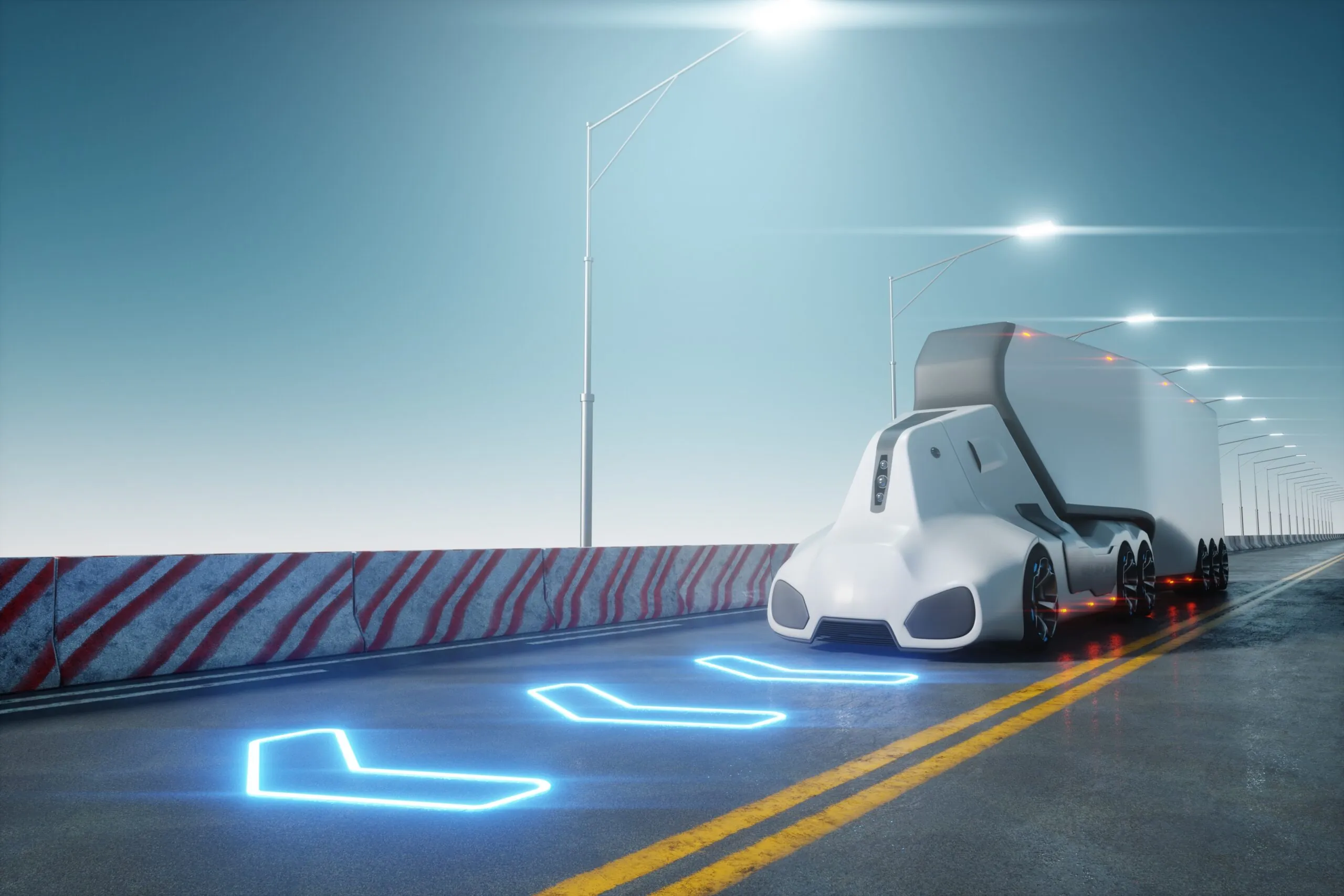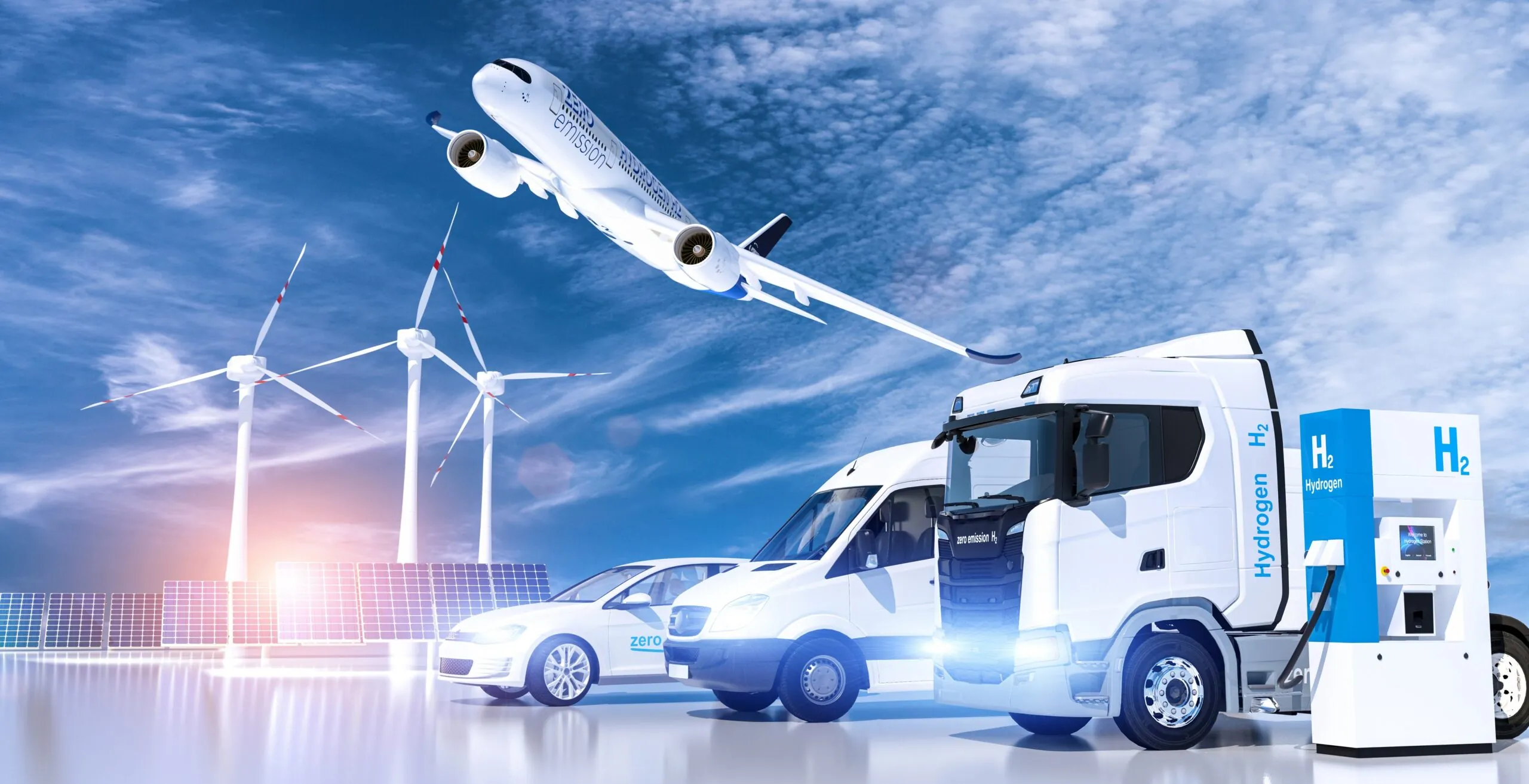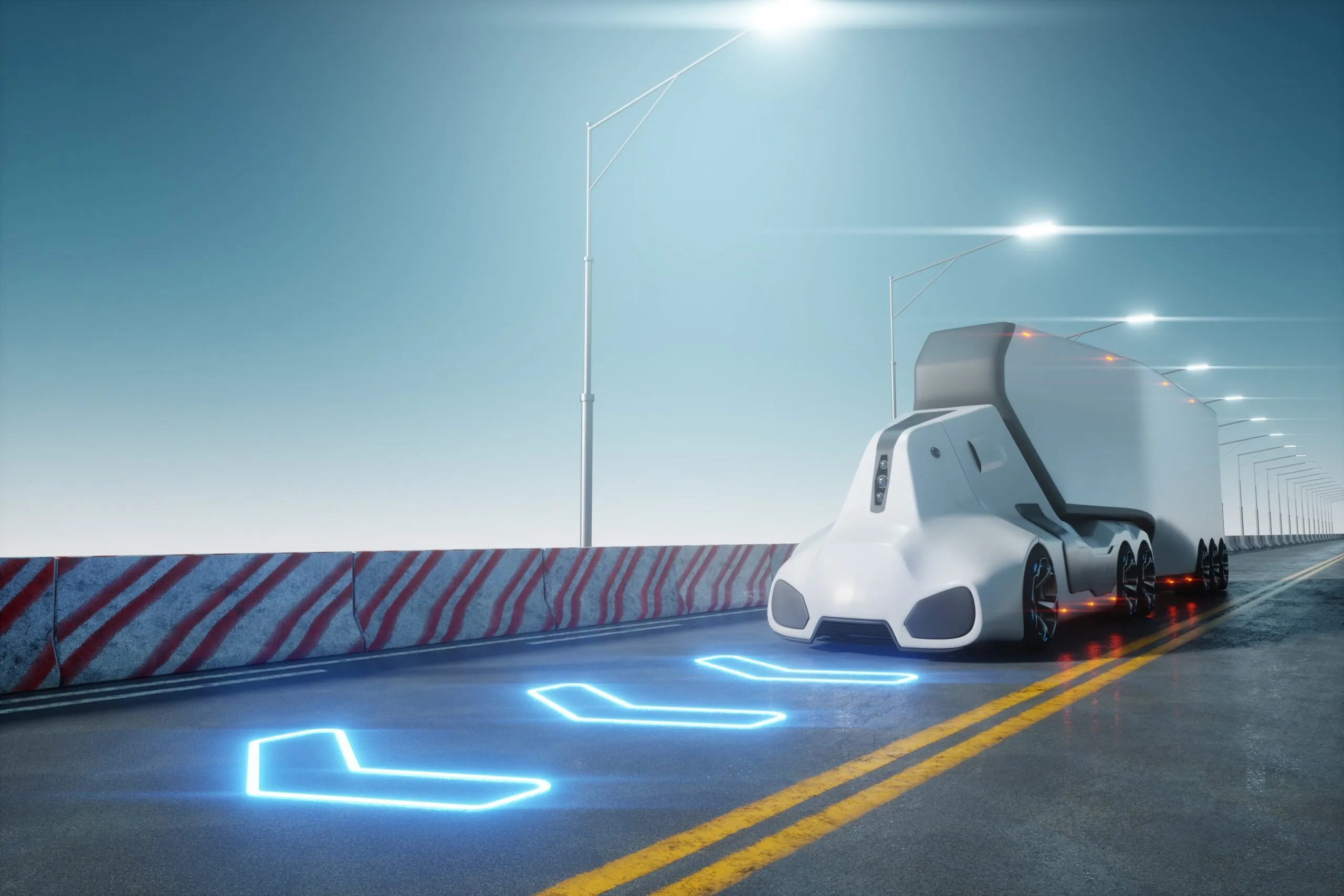
10 Ways Shipping Is Smarter with AI
Have you ever wondered how things get from one place to another? The answer lies with AI and transportation, which plays a vital role in connecting people, goods, and services in our everyday lives. Did you know that Artificial Intelligence is improving trucking too? AI is like having a smart brain that helps improve how things are moved around - it is a driving force behind numerous technological advancements, and its impact on the transportation industry is transformative.
AI transforms the shipping industry by optimizing routes, forecasting demand, providing real-time tracking, automating administrative tasks, managing risks and security, enabling predictive maintenance, enhancing customer service, promoting sustainability, and generating valuable data insights. Shipping companies can streamline operations, improve customer satisfaction, reduce costs, and achieve greater efficiency by utilizing AI technology.
Thousands of businesses trust FreightCenter to move their freight faster, smarter, and cheaper! From unbeatable rates to top-notch service, our customers are raving about their shipping success.
See why they keep coming back!
Award-Winning Service, Trusted by Shippers Everywhere!
- 2021, 2017 & 2016 Food Logistics’ Top Green Providers
- 2021 & 2018 Supply & Demand Chain Executives’ Pros to Know: Matthew Brosious
- 2020 & 2019 Top Food Logistics’ 3PL & Cold Storage Provider Award
- 2020 & 2019 Business Observer’s Top 500 Companies on the Gulf Coast
- 2020 & 2017 SmartWay® Transport Partner
- 2020 & 2017 Food Logistics’ Champions: Rock Stars of the Supply Chain
- 2020 Best of Palm Harbor Awards for Local Businesses
- 2017 Green Supply Chain Award from Supply & Demand Chain Executive
- 2017 Tampa Bay Business Journal Heroes at Work
- 2016, 2015, & 2012 Food Logistics Top 100 Software and Technology Providers
- 2013 Tampa Bay Business 100 by Tampa Bay Business Journal
- 2013 Top 100 Great Supply Chain Partners by SupplyChainBrain
- 2012 TIA Samaritan Award Honorable Mention
- 2012, 2011 & 2010 TBBJ Fast 50 Recipient
- 2013, 2011, & 2010 Diversity Business Top Businesses
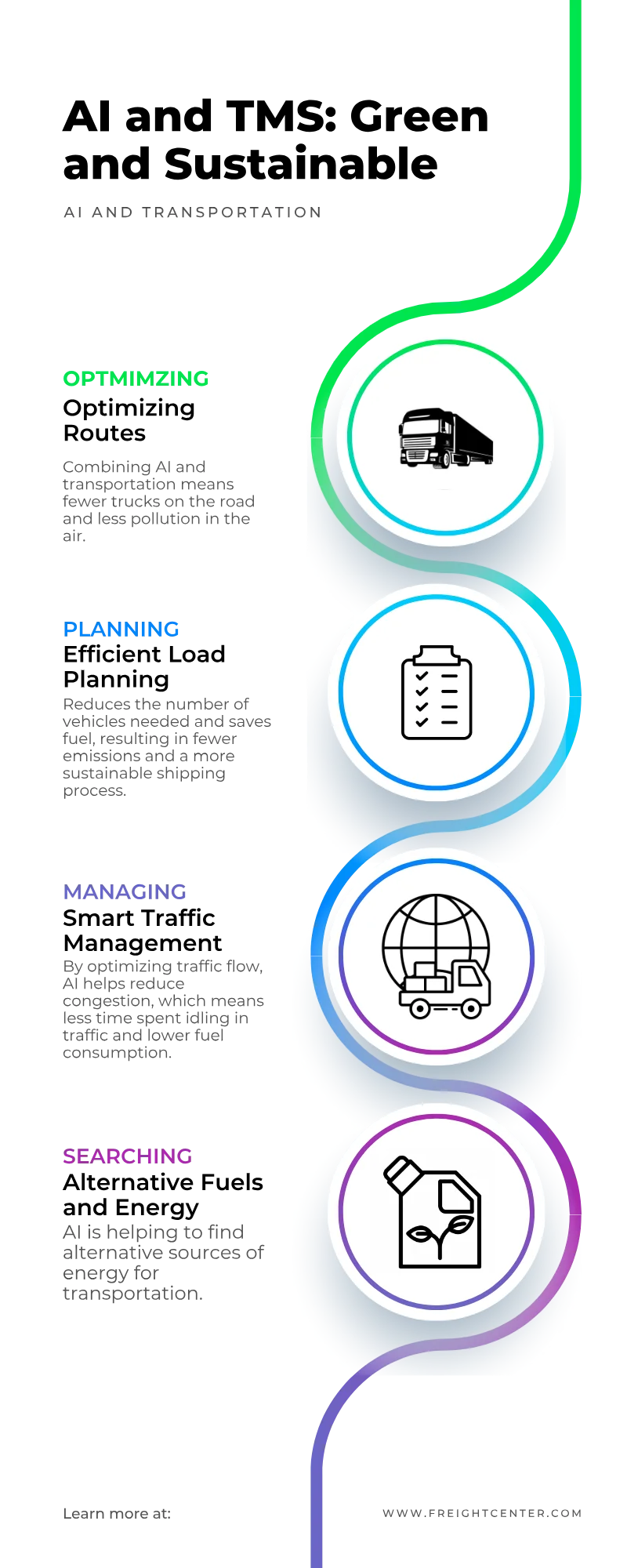
Sustainable Transportation
AI contributes to sustainable transportation practices through optimization and automation. Combining AI and transportation by analyzing data on fuel efficiency, emissions, and alternative transportation options, AI-powered Transportation Management Systems platforms help organizations make environmentally conscious decisions. Optimized routing and load planning reduce fuel consumption, greenhouse gas emissions, and overall environmental impact. Customers and company’s appreciate the role of AI in shaping a sustainable future and consider its application in building eco-friendly transportation systems.
Optimizing
AI can help shipping companies find the best and most efficient routes for delivering goods. By analyzing data about traffic, weather, and other factors, AI algorithms can plan the routes that use the least fuel and produce the fewest emissions. This means fewer trucks on the road and less pollution in the air.
Planning
AI algorithms can also help shipping companies plan how to pack goods onto trucks or ships in the most efficient way. By optimizing the use of space, AI ensures that more items can be transported in a single trip. This reduces the number of vehicles needed and saves fuel, resulting in fewer emissions and a more sustainable shipping process.
Managing
AI is being used to create smarter traffic management systems. These systems can control traffic lights and adjust signal timings based on real-time data. By optimizing traffic flow, AI helps reduce congestion, which means less time spent idling in traffic and lower fuel consumption. This not only makes shipping more efficient but also reduces greenhouse gas emissions.
Searching
AI is helping to find alternative sources of energy for transportation. It can analyze data about different types of fuels and energy sources to determine which ones are more sustainable and produce fewer emissions. This research helps shipping companies transition to cleaner fuels like electricity or biofuels, reducing their carbon footprint and making shipping more environmentally friendly.
1. AI and Transportation: Smarter Route Planning
Imagine if there was a computer brain that could figure out the best route for a delivery truck. That’s what AI does! By using information about traffic, weather, and previous delivery times, AI algorithms can plan the most efficient route for a driver. This reduces travel time, fuel consumption, and costs while ensuring timely deliveries. Efficient routes mean faster deliveries and less time spent in traffic when AI and transportation are integrated. By incorporating AI in Transportation Management Systems, logistics companies can minimize delays, reduce delivery time, save fuel, and lower transportation costs, making shipping more efficient overall. This benefits the businesses and customers alike.
2. Optimal Load Planning with AI Shipping
AI algorithms are also used to optimize how packages are loaded onto ships, planes, or trucks. By analyzing the size, weight, and destination of each package, AI can determine the best way to arrange them for maximum space utilization. This ensures that more packages can be transported in a single trip, reducing the number of vehicles needed and decreasing carbon emissions.
AI plays a crucial role in optimizing load planning for package trucks. By analyzing various factors, AI algorithms can determine the most efficient way to arrange packages onto ships, planes, or trucks – maximizing space utilization and minimizing transportation costs.
Package Attributes Analysis
AI algorithms analyze the attributes of each package, such as size, weight, fragility, and special handling requirements. By understanding the characteristics of the packages, AI can determine the most suitable placement and arrangement to ensure efficient use of space and prevent damage during transit.
Space Utilization Optimization
AI algorithms analyze the available space within the truck and optimize how packages are loaded to maximize capacity. AI can determine the most efficient configuration to utilize available space effectively by considering the dimensions and weight of each package. This configuration prevents wasted space and allows more packages to be transported in one trip, reducing the number of trucks needed and minimizing fuel consumption.
Load Stability and Safety
AI considers load stability and safety when planning package placement within a truck. By considering weight distribution, balance, and the prevention of shifting during transit, AI ensures that the load is stable and secure – reducing the risk of accidents or package damage during transportation.
Constraints and Delivery Prioritization
AI algorithms consider various challenges, such as delivery windows, package handling requirements, and special requests, when planning the load. AI can prioritize the placement of packages to meet specific delivery deadlines or accommodate special handling instructions by factoring in these constraints, ensuring time-sensitive or delicate packages receive appropriate attention.
Real-Time Updates and Adjustments
AI-powered systems can receive real-time updates on package additions, removals, or changes in delivery priorities. By integrating with tracking systems and considering dynamic changes, AI algorithms can adjust the load plan on the fly. This enables flexibility and adaptability to unforeseen circumstances, ensuring optimal load planning even in dynamic shipping environments.
Cost Optimization
AI algorithms consider cost factors such as fuel consumption, transportation distance, and vehicle capacity when planning the load. By optimizing load planning, AI helps minimize transportation costs by reducing the number of trucks required, optimizing fuel efficiency, and maximizing load capacity.
Continuous Improvement
AI-powered systems can learn from historical data and feedback to continuously improve load planning strategies. By analyzing performance metrics and customer feedback, AI algorithms can refine load planning algorithms over time, leading to increased efficiency and better load arrangements in the future.
It is essential to acknowledge the increasing applications of AI in transportation management systems and how AI makes shipping smarter.
AI revolutionizes the way we do our shipping and how we keep that supply chain running. This is where FreightCenter comes into play. As a prominent logistics provider in the shipping industry, FreightCenter facilitates the initial stages of the supply chain, offering comprehensive solutions for transporting materials from their origin to manufacturing facilities or distribution centers.
As a prominent logistics provider in the shipping industry, FreightCenter facilitates the initial stages of the supply chain, offering comprehensive solutions for transporting materials from their origin to manufacturing facilities or distribution centers. FreightCenter ensures a streamlined and efficient transportation process for businesses, laying the foundation for the seamless delivery of goods with carriers who utilize AI to make their deliveries smarter.
Artificial Intelligence algorithms can extract relevant information from shipment data, reducing errors and saving time for FreightCenter’s team. AI-powered chatbots and virtual assistants assist FreightCenter’s customers by providing real-time support and answering common inquiries. These AI systems can help customers track shipments, request quotes, and resolve issues, improving the overall customer experience and reducing the workload.
Through advancements in autonomous vehicles, dynamic route optimization, predictive maintenance, enhanced customer experiences, sustainability initiatives, supply chain optimization, and security enhancements, AI will revolutionize the way goods are shipped. At FreightCenter these AI advancements will lead to increased efficiency, reduced costs, improved sustainability, and an overall better shipping experience.

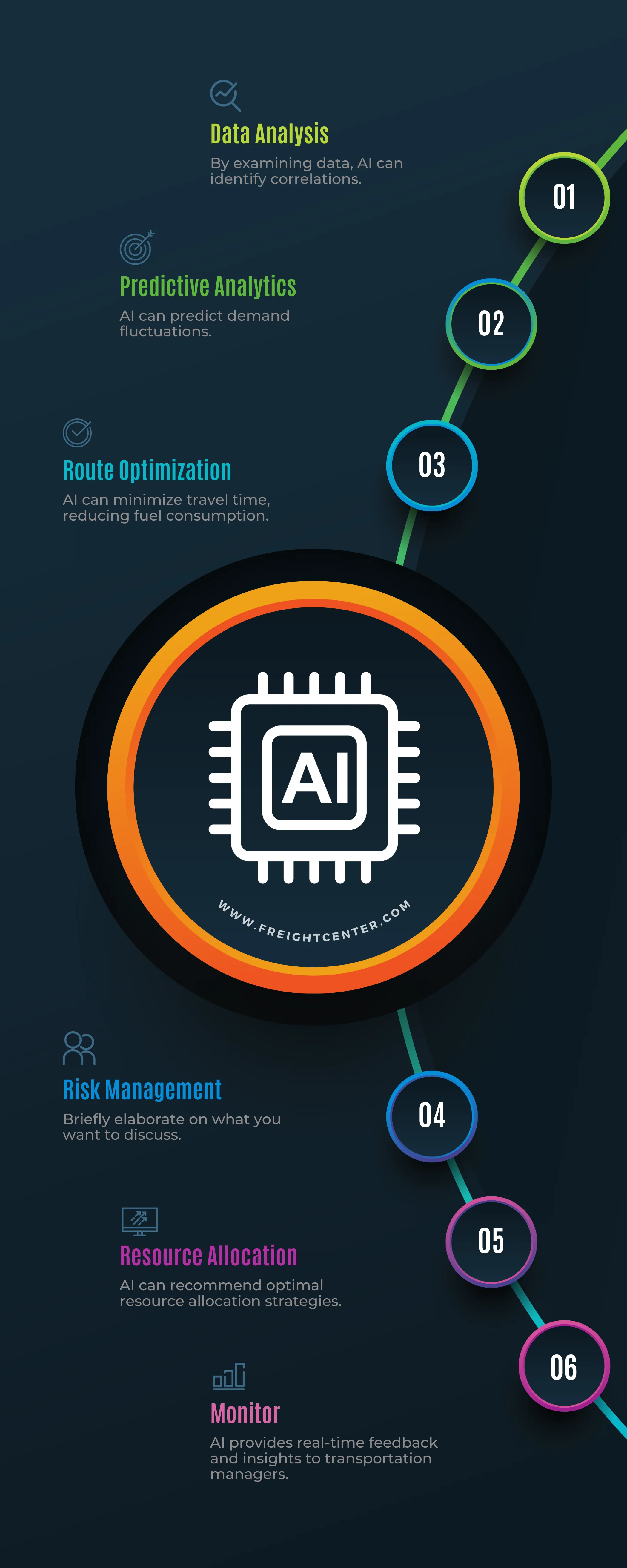
7. Making Better Decisions
AI can help transportation managers make better decisions. For example, if a truck has a problem, AI can suggest the best way to fix it. It can also help decide which truck is the best for a particular job. Artificial Intelligence examines lots of information and uses it to make smart choices, just like a super-smart friend who always knows what to do. AI-powered TMS systems assist in selecting carriers, negotiating rates, and optimizing load planning. These smart decision-making tools enable efficient resource allocation, reduce costs, reduce errors, improve customer satisfaction, enhance overall transportation efficiency and drive better outcomes for transportation management.
Data Analysis
AI algorithms can process and analyze large volumes of data from various sources, including historical transportation data, weather conditions, traffic patterns, and customer preferences. By examining this data, AI can identify patterns, trends, and correlations that may not be readily apparent to human managers. This information helps managers make data-driven decisions based on accurate and timely insights.
Predictive Analytics
AI-powered predictive analytics models leverage historical data to forecast future trends and events. For example, AI can predict demand fluctuations, identify peak transportation periods, and anticipate potential supply chain disruptions. With this information, transportation managers can proactively allocate resources, adjust schedules, and plan more effectively, reducing costs and improving customer satisfaction.
Route Optimization
AI algorithms analyze real-time data, including traffic conditions, road closures, and delivery windows, to determine the most efficient routes. By optimizing routes, AI can minimize travel time, reduce fuel consumption, and enhance overall transportation efficiency. This enables transportation managers to make decisions that save time, lower costs, and improve delivery performance.
Risk Management
AI can help transportation managers identify and mitigate risks associated with transportation operations. By analyzing historical data, weather forecasts, and other relevant factors, AI algorithms can predict potential disruptions such as weather-related delays, traffic accidents, or capacity constraints. Transportation managers can use these insights to develop contingency plans, optimize resources, and minimize the impact of unforeseen events.
Resource Allocation
AI assists transportation managers in optimizing resource allocation. By analyzing data on vehicle availability, driver schedules, and customer demand, AI algorithms can recommend optimal resource allocation strategies. This ensures that the right vehicles and drivers are assigned to specific routes or tasks, maximizing efficiency, and reducing costs.
Performance Monitoring
AI-powered systems can continuously monitor transportation performance metrics such as on-time delivery rates, fuel consumption, and driver behavior. By collecting and analyzing this data, AI provides real-time feedback and insights to transportation managers. This enables them to identify areas for improvement, implement corrective actions, and optimize performance over time.
Intelligent Decision Support
AI provides intelligent decision support tools that offer recommendations and suggestions to transportation managers. By leveraging machine learning algorithms, AI can process vast amounts of data and suggest optimal solutions for various transportation challenges. These tools enable transportation managers to make more informed decisions, improve operational efficiency, and enhance overall performance.
8. Innovation and Future Opportunities
AI’s influence on TMS extends beyond its current applications. As technology evolves, new opportunities arise, such as autonomous vehicles and drones. Self-driving trucks and delivery drones are being deployed and integrated into transportation systems. AI and Transportation Management Systems are helping develop autonomous vehicles for shipping. These vehicles can drive themselves without needing a human driver. By using AI algorithms and sensors, autonomous vehicles can navigate the roads safely and efficiently. This technology has the potential to reduce accidents, improve fuel efficiency, and create a more sustainable shipping industry.
9. Enhanced Security and Risk Management
AI can strengthen security measures within shipping by analyzing data from multiple sources, such as surveillance cameras and sensors. AI algorithms can detect anomalies or potential security threats, enhancing risk management and preventing theft or unauthorized access to shipments. This ensures the safety and integrity of goods during transit.
AI helps protect sensitive information and safeguards against cyberattacks by continuously monitoring and analyzing data. AI-powered transportation management systems can analyze X-ray images or other scanning technologies to identify potential threats or prohibited items within shipments. When incorporating AI-powered systems, shipping companies strengthen security measures, detect threats in real-time, and take proactive measures to protect shipments, personnel, and assets. These advancements contribute to a safer and more secure shipping environment.
10. Creates Future Opportunities and Careers in TMS
The increasing role of AI in transportation management systems presents exciting opportunities for high school students. Careers in logistics, supply chain management, and emerging technologies like AI offer pathways to work on cutting-edge projects. Students can explore research, engineering, or design roles in developing autonomous vehicles, optimizing transportation networks, or improving sustainability in transportation operations. Embracing AI and its applications in transportation management systems can open doors to a promising future.
Artificial Intelligence is like having an intelligent friend that helps make transportation better. AI makes transportation more efficient and reliable, from planning the best delivery route to predicting demand and keeping track of packages. It allows transportation managers to make smart decisions and keeps us safe on the roads. As technology advances, AI will play an even more significant role in improving transportation. So next time you see a delivery truck or wonder where your package is, remember that AI is working behind the scenes to make it all happen smoothly. AI revolutionizes the way we do our shipping and how we keep that supply chain running. This is where FreightCenter comes into play.
AI and Transportation FAQs
Q. How AI is being used in transportation?
A. AI is revolutionizing transportation by enhancing safety and efficiency. For instance, AI systems visually monitor intersections and pedestrian/cyclist paths to detect accidents and minimize risks. Additionally, AI researches traffic patterns, identifying causes of delays and congestion to improve the overall flow of traffic. Embracing AI in transportation is crucial for enhancing safety and optimizing travel experiences.
Q. How will AI impact the transportation industry?
A. AI will have a significant impact on the transportation industry, primarily through the advancement of self-driving vehicles. These autonomous cars and trucks, boosted by AI and machine learning capabilities, can navigate their surroundings, make informed decisions, and operate without human intervention.
Q. What are the issues with AI in transportation?
A. The challenges of AI in transportation include costly integration, high operational expenses, potential job displacement, and the increasing presence of AI in logistics. As AI becomes a reality, the logistics industry will grapple with these issues.
Q. What is the future of AI in transportation?
A. The future of AI in transportation is promising, especially in the aviation industry. AI technology has the potential to solve conventional problems like flight delays, making air travel more efficient. The benefits of AI in transportation extend beyond land vehicles and traffic management, with AI expected to revolutionize the aviation sector.
Q. Will AI make transportation better?
A. Yes, AI tools and algorithms have the potential to greatly improve transportation. By predicting congestion and optimizing traffic flow, AI can save time for people, speed up the transportation of goods, and even reduce pollution. Overall, AI has the capability to revolutionize the transportation industry and make it more efficient and sustainable.
Q. How will AI impact the transportation industry?
A. AI will revolutionize the transportation industry by introducing self-driving vehicles. Through the use of advanced algorithms and machine learning, autonomous cars and trucks can navigate the roads, make decisions, and operate without human control. The impact of AI on transportation entails safer and more efficient travel in the near future.
Q. How is transport being made greener?
A. Greener transport options focus on sustainable practices such as using electric vehicles that emit no polluting exhaust and can run on renewable energy. Other environmentally friendly options include vehicles powered by hydrogen and biofuel, along with active modes of transport like cycling, scootering, and walking. These measures contribute to a more eco-friendly transportation system.
Q. How AI can help public transportation?
A. AI helps public transportation by enhancing safety measures. SEPTA, Philadelphia’s transit system, is implementing AI-powered gun-detection software on their buses, trains, and subways. This AI technology provides increased safety for riders, making public transit systems safer for everyone in Philadelphia. With AI, public transportation can better prevent potential threats and enhance the overall security of the transportation network.
AI and Transportation FAQs
Q. How AI is being used in transportation?
AI is revolutionizing transportation by enhancing safety and efficiency. For instance, AI systems visually monitor intersections and pedestrian/cyclist paths to detect accidents and minimize risks. Additionally, AI researches traffic patterns, identifying causes of delays and congestion to improve the overall flow of traffic. Embracing AI in transportation is crucial for enhancing safety and optimizing travel experiences.
Q. How will AI impact the transportation industry?
AI will have a significant impact on the transportation industry, primarily through the advancement of self-driving vehicles. These autonomous cars and trucks, boosted by AI and machine learning capabilities, can navigate their surroundings, make informed decisions, and operate without human intervention.
Q. What are the issues with AI in transportation?
The challenges of AI in transportation include costly integration, high operational expenses, potential job displacement, and the increasing presence of AI in logistics. As AI becomes a reality, the logistics industry will grapple with these issues.
Q. What is the future of AI in transportation?
The future of AI in transportation is promising, especially in the aviation industry. AI technology has the potential to solve conventional problems like flight delays, making air travel more efficient. The benefits of AI in transportation extend beyond land vehicles and traffic management, with AI expected to revolutionize the aviation sector.
Q. Will AI make transportation better?
Yes, AI tools and algorithms have the potential to greatly improve transportation. By predicting congestion and optimizing traffic flow, AI can save time for people, speed up the transportation of goods, and even reduce pollution. Overall, AI has the capability to revolutionize the transportation industry and make it more efficient and sustainable.
Q. How will AI impact the transportation industry?
AI will revolutionize the transportation industry by introducing self-driving vehicles. Through the use of advanced algorithms and machine learning, autonomous cars and trucks can navigate the roads, make decisions, and operate without human control. The impact of AI on transportation entails safer and more efficient travel in the near future.
Q. How is transport being made greener?
Greener transport options focus on sustainable practices such as using electric vehicles that emit no polluting exhaust and can run on renewable energy. Other environmentally friendly options include vehicles powered by hydrogen and biofuel, along with active modes of transport like cycling, scootering, and walking. These measures contribute to a more eco-friendly transportation system.
Q. How AI can help public transportation?
AI helps public transportation by enhancing safety measures. SEPTA, Philadelphia’s transit system, is implementing AI-powered gun-detection software on their buses, trains, and subways. This AI technology provides increased safety for riders, making public transit systems safer for everyone in Philadelphia. With AI, public transportation can better prevent potential threats and enhance the overall security of the transportation network.



